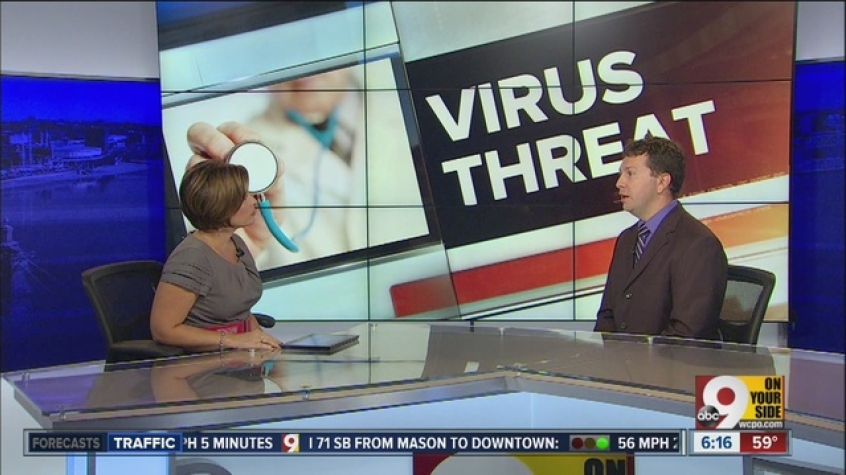
The respiratory virus EV-D68 has been the cause for hundreds of children in Missouri to be taken to the hospital. Now, the virus has also spread to 10 other states in the U.S. At first, many believed that the virus only targeted children, but now, research says that even parents and adults can be infected, too.
Division director for infectious diseases at Mercy Children's Hospital in Kansas City, Dr. Mary Anne Jackson, told CNN, "It's worse in terms of scope of critically ill children who require intensive care. I would call it unprecedented. I've practiced for 30 years in pediatrics, and I've never seen anything quite like this."
What is the lowdown on EV-D68? Here's everything families need to know about the virus:
There are many types of enteroviruses, and EV-D68 is one strain. The strain is not common, but neither is it new. The first time it was identified as a virus was in 1960. There have been only 100 reported cases previously; It is only this time that an outbreak of EV-D68 hashappened.
EV-D68 will start out like a common cold, almost with the same symptoms like runny nose, sneezing and cough. According to The Stir, the symptoms can escalate into fever, rash, severe cough and wheezing.
The first reported case was in mid-August, which is when school started. Enterovirus usually peaks in September, so there is currently a higher risk of children getting infected and of the virus to spreading quickly. As mentioned, cases started in Missouri, but now, the virus has spread to Colorado, Kentucky, Oklahoma, Illinois, Ohio, North Carolina, Ohio, Kansas and Georgia.
The recent outbreak in Missouri sent 30 children a day to the hospital and 15 percent was in intensive care. The EV-D68 makes children vulnerable to it because kids have not built a strong immunity to the strain of virus yet. Unfortunately, there is still no vaccine or treatment for EV-D68.
Dr. Aaron Glatt, Chief Administrative Officer at Mercy Medical Center said, "For now, hand washing is critical."
Dr. Glatt specializes in infectious diseases and he advices everyone to wash hands for at least 20 seconds with soap and water.
He also said, "If symptoms worsen or you have any breathing difficulties, see your physician."
Moreover, it is not only children who are at risk of being infected; even adults with asthma and other underlying sickness can get infected, too, said Dr. Glatt. So right now, everyone needs to pay extra care to always have clean hands, to observe common cold symptoms, and to get early treatment.













